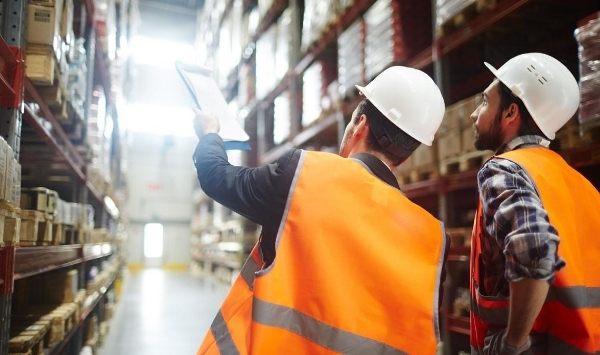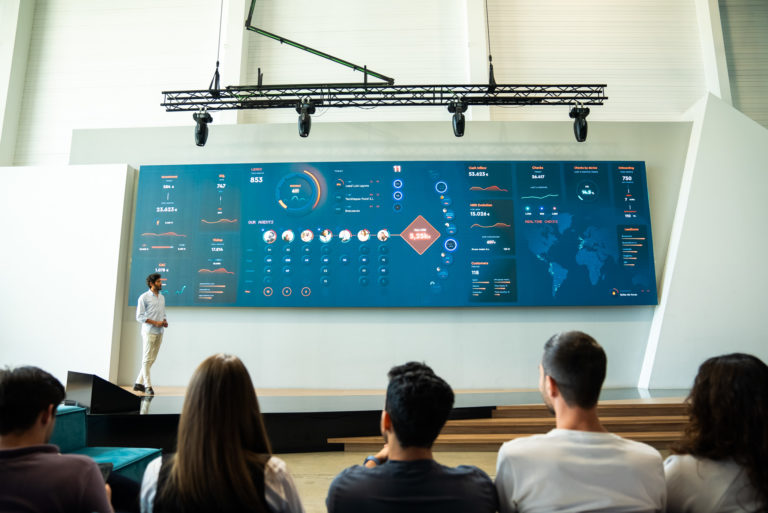The future of logistics

If we want to know the future of logistics, we must first know its history. The word “logistics” comes from the Greek root Logis, meaning calculation, and from the Latin logistic, which in Ancient Rome was used to identify the administrator or quartermaster of the Empire’s armies. Although the more modern origin comes from the French logistique through the English logistics, and refers to the military part that is in charge of the transport, lodging and provisioning of the troops in campaign.
Today it encompasses a broader concept, we could say that logistics is in charge of everything related to the efficient organization of resources, and if we talk within the business world, logistics, historically has always been a cost, an obligatory function and without added value, we could say that it was a necessary evil also falling in an area where no advantage could be obtained.
Since the industrial revolution and the improvement in production capacity, this concept has been changing, technological advances have also improved the operational possibilities, from a simple warehouse and transport to analytical centers, with the objective of minimizing costs. Later, computers and internet were introduced and it is here where some companies begin to use logistics as a competitive advantage, benefiting once again those who have more resources and therefore more access to innovative and expensive tools.
What is happening in the logistics sector?
What is happening in the logistics sector?
What path is logistics taking today? Technology is guiding its steps, this would be the most suitable answer. We are talking about barcodes for tracking and monitoring, elimination of bureaucracy, QR codes, RFID technology, etc… and, therefore, we would be talking about improvements:
Positive aspects of logistics
The following are some of the highlights within the logistics sector:
- Permanent communication between actors. Technology makes it possible for communication to be permanent and in real time.
- Real-time tracking. Traceability is a thing of the past, it was achieved a few years ago and is still being exploited today for different purposes.
- Improvement of forecasts. The success of the method, applying new technologies and not only experience, is a fact.
- Warehouse optimization. Real-time visualization of warehouse saturation, forecasts, stocks to terms, etc… makes it a reality.
- Speeding up decision making. The visualization of data thanks to digitization leads to faster decision making, which has improved in recent years and continues to advance, although there is still much to be done.
- Reduction of deadlines. Briefly, we could say that it is the consequence of having data.
- Improved customer satisfaction. Another consequence related to the previous point.
Logistics challenges
However, the logistics sector faces significant challenges:
- Excessively demanding customer with unrealistic expectations due to lack of knowledge. We are in a moment where the client is demanding by nature, in many occasions because he himself has assured unreal or difficult to reach delivery terms, and it also happens, many times coinciding with the final client who demands without having a real need, simply because of the already acquired habit, without knowing the procedures followed and above all without knowing the repercussions that this entails.
- The famous “carbon footprint”. Although we hear this term more and more, I believe that the importance of the greenhouse gas emissions caused by today’s excessive and demanding demand is not given the importance it really has.
- Dehumanization of the service, of the process and of the client/operator himself. It is something evident and palpable in our society. Demands, haste, competitiveness, etc… cause giants like Amazon, to cite a typical example, to “invent” an algorithm to classify their employees and be able to fire them without the need for human intervention… little more to say.
- Substitution of labor or near-automation of its movements etc.

What does the future hold for logistics?
What does the future hold for logistics?
We say future but it is the reality, what can we say that is being developed technologically that affects logistics? Mainly AI, learning to think like a human to make decisions, analyze results and propose actions. This competitive advantage will be the one that will make the difference, being very similar to the time when the internet and computing in general appeared.
The future is unpredictable, but it is easy to detect current trends in a field as broad as logistics. We could safely say that we are heading towards:
- Green and sustainable logistics.
- Digitization of processes that will involve real-time visualization of data, therefore, rapid decision making and problem solving.
- Continuous optimization of warehouses.
- AI, BigData.
- Drones.
- Process automation.
- Route optimization.
- Supply chain planning.



